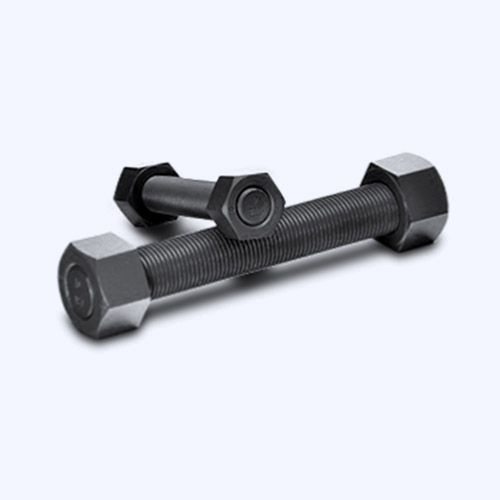

metric washers
Dec . 07, 2024 01:06 Back to list
metric washers
Understanding Metric Washers A Comprehensive Guide
In the world of engineering and manufacturing, small components can make a significant difference in the overall functionality and performance of an assembly. One such component is the washer, particularly the metric washer. This article delves into the importance, types, applications, and benefits of using metric washers in various industries.
What is a Metric Washer?
A washer is a flat, disc-shaped component that serves as a spacer, spring, or seal between two surfaces, typically in conjunction with a bolt or screw. A metric washer is specifically designed to conform to international metric standards (ISO), which facilitate compatibility and uniformity across various applications. These washers are made from a variety of materials, including metal, plastic, and rubber, each chosen for its specific properties and suitability to the task at hand.
Types of Metric Washers
Metric washers are categorized based on their design and functionality. Here are some common types
1. Flat Washers These are the most basic type of washers. They provide a larger surface area to distribute the load of a fastener, thereby reducing the risk of damage to the surface material.
2. Lock Washers Designed to prevent the loosening of a fastener due to vibration or movement, lock washers come in various forms, including split, toothed, and external lock washers.
3. Spring Washers As the name suggests, these washers are used to create tension and provide resilience in bolted or fixed assemblies.
4. Fender Washers These washers have a larger outer diameter than standard flat washers, enabling them to cover larger holes and surfaces.
5. Sealing Washers Typically made from rubber or another elastomeric material, sealing washers prevent leaks by creating a friction seal under the head of a bolt or nut.
Benefits of Using Metric Washers
1. Compatibility The metric system is universally recognized. Using metric washers ensures compatibility with metric bolts and screws, reducing the risk of mismatched fasteners that could compromise structural integrity.
metric washers

2. Load Distribution Washers help to evenly distribute the load and decrease the stress on the joint materials. This is particularly important in applications where heavy loads are involved, as it minimizes the likelihood of material failure or deformation.
3. Preventing Damage By acting as a protective barrier, washers prevent damage to the surfaces they contact. This is especially useful in soft materials that can easily be marred or crushed under the pressure of fasteners.
4. Vibration Resistance Certain types of washers, such as lock washers, are designed to maintain tightness under conditions of movement and vibration. This is crucial in automotive, aerospace, and machinery applications where a secure fit is paramount.
5. Ease of Maintenance The uniformity and availability of metric washers simplify the maintenance process. Engineers can easily replace worn-out washers without redesigning an entire assembly.
Applications of Metric Washers
Metric washers find extensive use across various industries, including
- Automotive Industry In automotive manufacturing, metric washers are used in engine assemblies, chassis construction, and body fittings. Their ability to withstand vibrations makes them ideal for these applications.
- Construction Metric washers are essential in the construction of buildings and infrastructure. They provide stability and support for structural elements, ensuring safety and durability.
- Electronics In electronic devices, small metric washers can be found securing circuit boards and components, preventing movement that could lead to failures.
- Machinery and Equipment Heavy machinery often employs metric washers to ensure that bolts and screws remain tight, which is critical for operational safety and efficiency.
Conclusion
Understanding metric washers and their roles in various applications is crucial for anyone involved in engineering, construction, or manufacturing. Their compatibility, load-distributing properties, and protective capabilities make them indispensable in ensuring the integrity and longevity of assemblies. As industries continue to evolve and demand higher standards, the importance of using the right type of metric washer in any project cannot be overstated. Whether it’s in the complexities of automotive engineering or the simplicity of home repairs, the right washer can make all the difference.
Latest news
-
High-Strength Hot Dip Galvanized Bolts - Hebei Longze | Corrosion Resistance, Customization
NewsJul.30,2025
-
Hot Dip Galvanized Bolts-Hebei Longze|Corrosion Resistance&High Strength
NewsJul.30,2025
-
High-Strength Hot-Dip Galvanized Bolts-Hebei Longze|Corrosion Resistance&High Strength
NewsJul.30,2025
-
Hot Dip Galvanized Bolts-Hebei Longze|Corrosion Resistance&High Strength
NewsJul.30,2025
-
Hot Dip Galvanized Bolts - Hebei Longze | Corrosion Resistance, High Strength
NewsJul.30,2025
-
High-Strength Hot Dip Galvanized Bolts-Hebei Longze|Corrosion Resistance, Grade 8.8
NewsJul.30,2025

